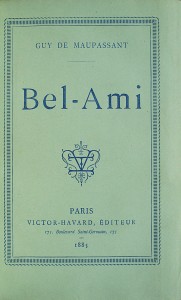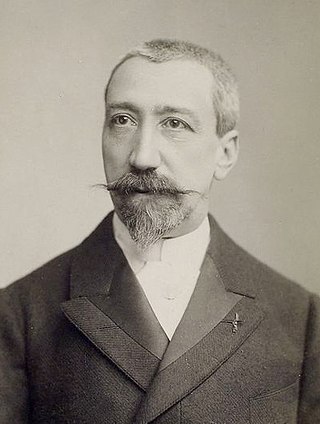
Anatole France was a French poet, journalist, and novelist with several best-sellers. Ironic and skeptical, he was considered in his day the ideal French man of letters. He was a member of the Académie Française, and won the 1921 Nobel Prize in Literature "in recognition of his brilliant literary achievements, characterized as they are by a nobility of style, a profound human sympathy, grace, and a true Gallic temperament".

Henri René Albert Guy de Maupassant was a 19th-century French author, celebrated as a master of the short story, as well as a representative of the naturalist school, depicting human lives, destinies and social forces in disillusioned and often pessimistic terms.
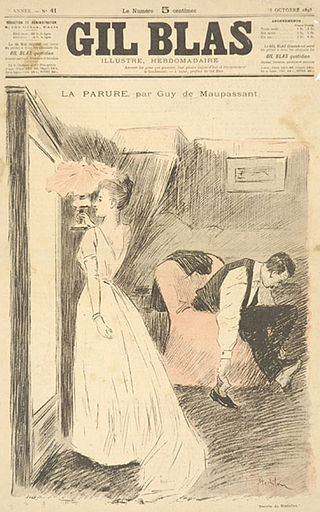
"The Necklace" is a short story by French writer Guy de Maupassant. It is known for its twist ending, which was a hallmark of de Maupassant's style. The story was first published on 17 February 1884 in the French newspaper Le Gaulois.
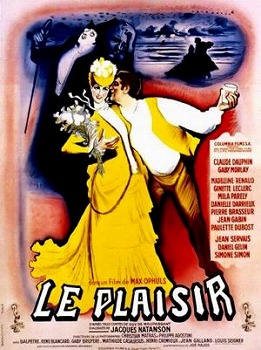
Le Plaisir is a 1952 French comedy-drama anthology film by German-born film director Max Ophüls (1902–1957) adapting three short stories by Guy de Maupassant — "Le Masque" (1889), "La Maison Tellier" (1881), and "Le Modèle" (1883).
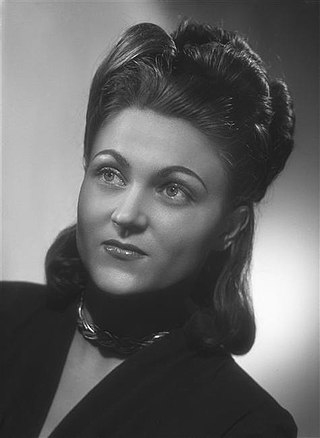
Renée Faure was a French stage and film actress.
Bel Ami is a 1939 German film directed by Willi Forst. It is loosely based on Guy de Maupassant's 1885 novel Bel Ami, with considerable changes to the original plot.

The Private Affairs of Bel Ami is a 1947 American drama film directed by Albert Lewin. The film stars George Sanders as a ruthless cad who uses women to rise in Parisian society, co-starring Angela Lansbury and Ann Dvorak. It is based on the 1885 Guy de Maupassant novel Bel Ami. The film had a 1946 premiere in Paris, Texas. The score is by Darius Milhaud.

Bel Ami is a 2012 drama film directed by Declan Donnellan and Nick Ormerod and starring Robert Pattinson, Uma Thurman, Kristin Scott Thomas, Christina Ricci and Colm Meaney. The film is based on the 1885 French novel of the same name by Guy de Maupassant.
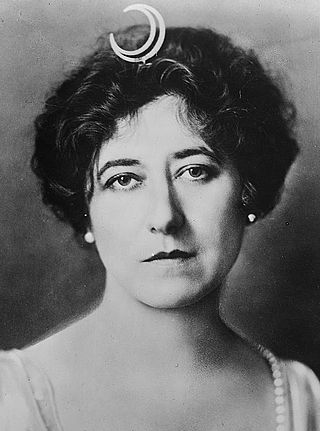
Gabrielle Dorziat was a French stage and film actress. Dorziat was a fashion trend setter in Paris and helped popularize the designs of Coco Chanel. The Théâtre Gabrielle-Dorziat in Épernay, France is named for her.

Jacques Weber is a French actor, director, and writer.
BelAmi is a European gay pornographic film studio with offices in Bratislava, Prague and Budapest. It was established in 1993 by filmmaker George Duroy, a Slovak native who took his pseudonym from the protagonist Georges Duroy in Guy de Maupassant's novel Bel Ami. In addition to hardcore DVDs, BelAmi and Bruno Gmünder Verlag also produce calendars and photo books, such as Howard Roffman's Private Moments: Bel Ami (2009), and its performers are frequent headliners at nightclubs and similar venues around Europe, the United States, Australia, Canada, and elsewhere.
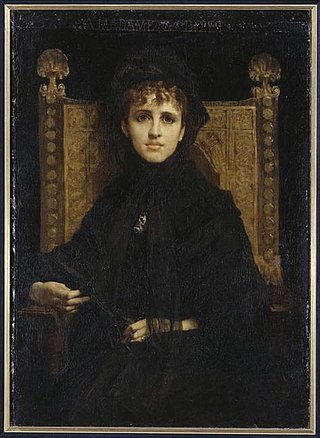
Marie-Geneviève Raphaëlle Halévy-Bizet-Straus was a French salonnière who was the wife of composer Georges Bizet. She inspired Marcel Proust as a model for the Duchesse de Guermantes and Odette de Crécy in his novel À la recherche du temps perdu (1913).
Guy de Maupassant wrote short stories, novels, travel accounts and poetry.
"La Confidence" is a short story by French author Guy de Maupassant, published in 1885.
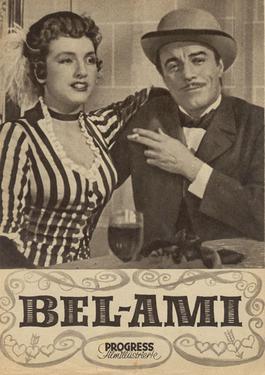
Bel Ami is a 1955 historical drama film directed by Louis Daquin and starring Anne Vernon, Renée Faure and Jean Danet. It was a co-production of Austria, France and East Germany. The film was shot in the Soviet-controlled Rosenhügel Studios in Vienna.

Georges Poisson was a French art historian.
Bel Ami is a British five part television costume drama based on the 1885 French novel Bel-Ami by Guy de Maupassant. It aired in 1971 on BBC 2. The series starred Robin Ellis as Georges Duroy, John Bryans as Monsieur Walter, Margaret Courtenay as Madame Walter, Elvi Hale as Clotilde de Marelle, Garfield Morgan as Jacques Rivat, Suzanne Neve as Madeleine Forestier, and Maurice Quick as Duroy's manservant. British television historian Claire Monk wrote, "BBC Two's five-part Bel Ami indicatively exhibited the sexual attitudes of its time in its makers' insistence that the story of penniless opportunist Georges Duroy— a social outsider in Parisian society who ruthlessly uses sex to pursue his ambitions— as basically a comedy with the charms of a fantasy world."
Bel Ami is a 1983 French language television miniseries adaptation of Guy de Maupassant's 1885 novel Bel-Ami. Written by Pierre Moustiers, the two episode series was directed by Pierre Cardinal. The cast included Jacques Weber as Georges Duroy, Aurore Clément as Madeleine Forestier, Michel Auclair as M. Walter, Anne Consigny as Suzanne, Rosette as Rachel, Denis Manuel as Charles Forestier, Micheline Bona as Mme La Roche Mathieu, Johan Corbeau as L'évêque, Dominique Daguier as Le lithographe, and Jacques Deloir as Langremont.

Blanche Adeline Pierson was a French actress most notably known for her portrayal of Marguerite Gautier in "The Lady of the Camellias".
